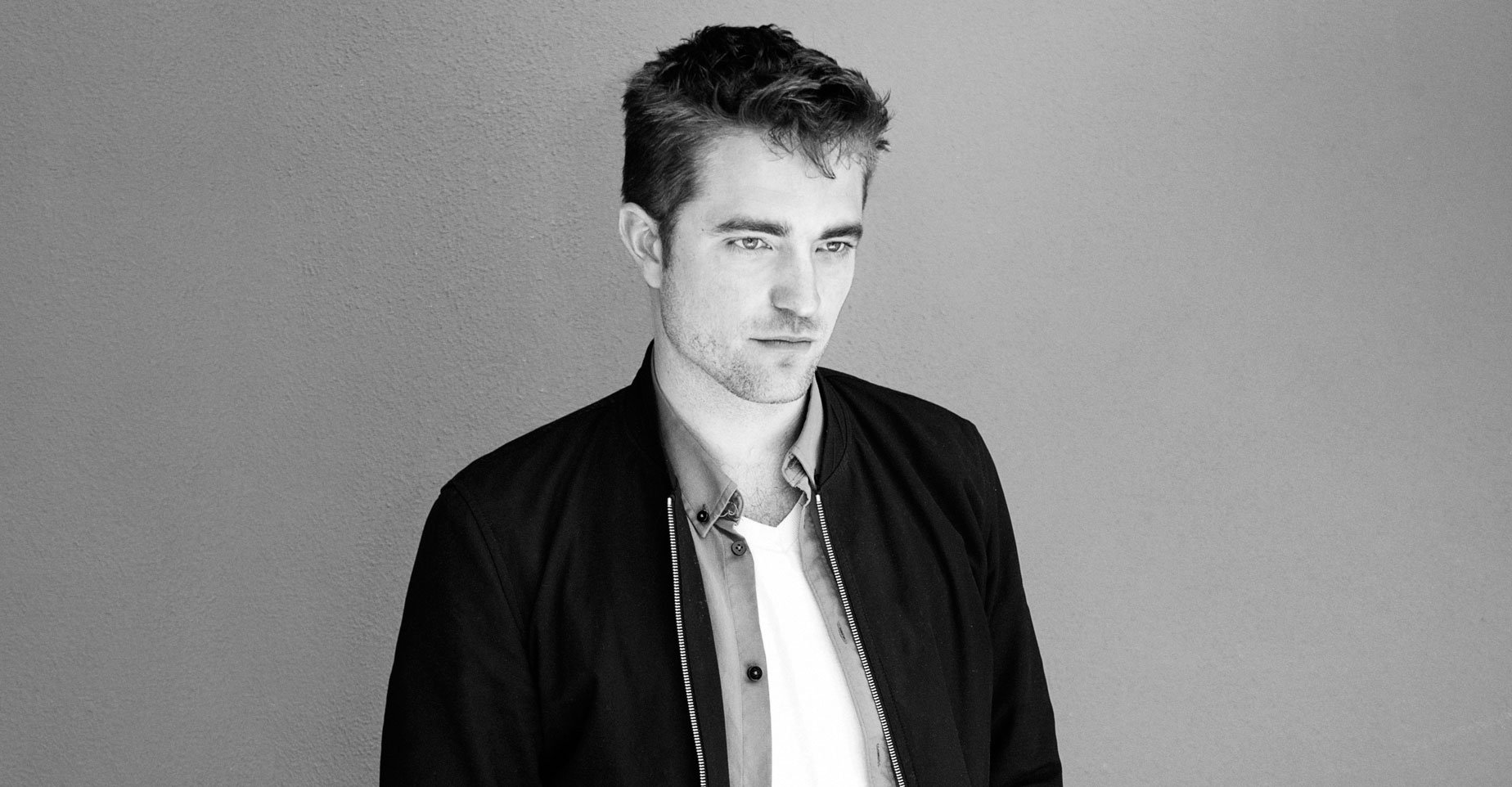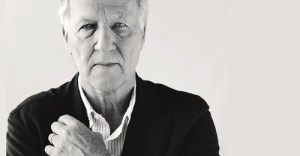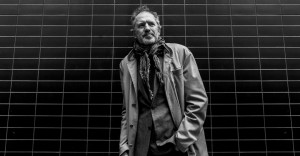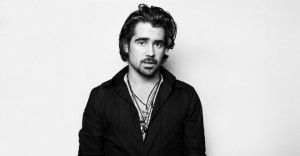Mr. Pattinson, are you disillusioned with your career?
I think a lot of actors get disillusioned and say, “Oh, I thought it was going to be one way, and it’s something else.” I never thought anything was going to be any particular way at all! You know, in the good times and the bad times, they’re all just new experiences. So I can’t really be disillusioned with anything because I didn’t have any expectations at all.
What about people’s expectations of you?
I’ve never really acknowledged people’s expectations of me. A lot of actors sort of fall into the job and feel like they’re going to get “found out,” like, found out that they’re a fraud or something like that. I think loads of people feel like that. I did a film with Anton Corbijn called LIFE where I played the photographer who shot those famous photos of James Dean and there are a lot of parallels between an acting career and a photography career.
Like what?
Both of them are almost entirely dependent on the material, especially if you’re doing stuff like taking photos of famous people and really talented people who are incredibly interesting and charismatic. As an actor, you want to be an artist, but you’re so dependent on everybody else! And even if you’re great in something, there’s only a few actors who the audience acknowledges that they were the reason something’s good. With a photographer, it’s very difficult to claim stuff, too.
As someone who has been hounded by the paparazzi more than most, was it cathartic to switch roles and play the photographer for once?
It was quite strange walking up to the Chateau Marmont as a paparazzi. It was very weird at the actual place. I don’t know if it was cathartic. Maybe it would have been if, because of him being paparazzi, he ends up getting beaten to death…
They’re just people, too.
Well… In fact, not at all. That’s probably why my character was so filled with self-loathing, because he’s a paparazzi. (Laughs)
When your career started off you had some trouble with photographers yourself.
When Twilight first happened, a lot of the franchise people at the time were under strict control by the studios and stuff, so they did it quite “kid-friendly.” And I think for the first few months I kept getting photographed, like, being drunk and smoking cigarettes and things. So I think that’s kind of why people said it was a bit different. But I think the landscape has changed so much. I remember even people like Colin Farrell and stuff. I guess when he was super wild, that was only seven years ago, eight years ago, but I don’t even think you’re allowed to be like that anymore.
Why not, what would happen?
If you do that now, you just don’t get employed. At all. Everyone wants you to be so vanilla! It’s so lame! So, everyone’s just like secret drug addicts instead. (Laughs)
Did you have interview training once you signed on to do Twilight to keep all of your comments vanilla?
Yeah, Summit put me in media training because I was doing too many stupid interviews. I just wanted to tell jokes and stuff and then they sent an email afterwards saying that I refused to cooperate with the media training! It’s my agent’s favorite email she got because she thought it was so hilarious that I refused to relent to the media training.
Would it be possible for you to still be friends with a journalist?
I think it works until you get to a certain level of fame. Before the first Twilight came out there were a couple of journalists who I got on with. They did good profiles on you and stuff and they’d kind of champion you for a bit. But I think if you do too many interviews, people aren’t interested in the nuances of what you’re saying. You’ve just said too much and you end up repeating yourself. The editors are like, “Get him to say something that makes him sound like an idiot or get him to say something controversial.”
That’s pretty much exactly how it goes for many publications, sadly.
Yeah and I think you can’t really be that close with a journalist when you can see them, like, needing you to say something bad for their own jobs. I know actors who have made deals with paparazzi and stuff – it always backfires. Always. Because, like, you just shouldn’t. As soon as you start throwing shit around, you’re going to get covered in shit.
Well, after Twilight ended you’ve been choosing to work with auteurs like Herzog, Cronenberg, Anton Corbijn, and James Gray on smaller projects where your exposure is a lot different.
The last few years I’ve basically done stuff just for the director. After working with Cronenberg on Cosmopolis it just opened stuff up. People approach you in a different way. And now I’ve done a few other things and it kind of just works on a roll, being able to work with these auteur-y kind of guys. It’s quite nice to do smaller parts, so the film doesn’t totally rely on what I do in it. I get to work with who I want to work with and it’s not my fault if it doesn’t make any money!
After working with a few of those directors, has there been a moment where you noticed the difference in how they work?
There was a moment at the end of The Rover. We had just wrapped and David Michôd was standing in the middle of the parking lot we were just shooting in. He looked sort of weird and was watching people packing stuff up. And I was like, “You all right?” And he said, “Yeah, I just think I’m only going to have like six more of these days in my life, so I just want to feel it for a second.” It’s so funny the difference between someone who is doing a job essentially for their next job, or somebody who has written it, produced it.
Someone who is going to devote several years of their life to it when it’s all said and done.
Yeah, you can feel it. It’s much more exhilarating and fun to try to fulfill someone’s dream. A lot of the time you’re working with someone and they don’t really know what they want and they don’t even necessarily want to do the job they’re doing. So you’re just trying to not drown and they’re panicking the whole time. It’s horrible. But with people who are confident and believe in their projects, it’s a completely different experience.
Return to Top

Short Profile
Name: Robert Douglas Thomas PattinsonDOB: 13 May 1986
Place of birth: London, England, United Kingdom
Occupation: Actor
Robert Pattinson’s new film LIFE hits theaters in Germany on September 24th, and in the United States on December 4th.





















Once again Rob Pattison shows he’s a class act. And an artist.
Vanilla. So true. Not just celebrities but just about everyone is under the pressure of acting Vanilla.
Please, I need the full audio of Rob !!
Such an insightful, thoughtful interview. Thanks so much!
It is a wellknown fact that Rob Pattinson refused to follow media training and til today refuses to have a publicist. He wants to take the responsibility for his words, even if they cause him some trouble. Too many times, when watching video interviews or talk shows, you feel how most actors use promo friendly technics: looking at the right time to the audience, saying stuff they know the audience will laugh with etc. they all seem so fake at times.
Not Rob Pattinson. His immense popularity wasn’t only based on his good looks only but also on his genuine, modest personality, his hilarious interviews, his lack of moothfilter. He was a breeze of fresh air in Hollywood, years before the media said the same about Jennifer Lawrence.
Recently saw LIFE and loved it, so was v interested to read this interview. Insightful. And highly recommend the film.
I think that many people want to see vices, but hidden. It’s like we want in a very voyeuristic way the ‘lows’ or ‘bad’ things of ‘famous’ people because it lowers them down of the image of perfection or happiness that the culture industry try to sell. In a weird form, those hidden vices reminds us that they are just people, and that’s precisely what the major film/music or any kind of industry don’t want, since the product is sold based not only in the product itself but in the person that gives his image.